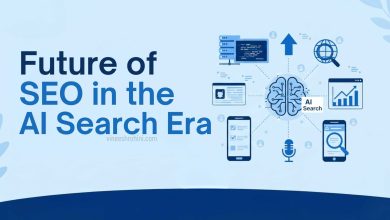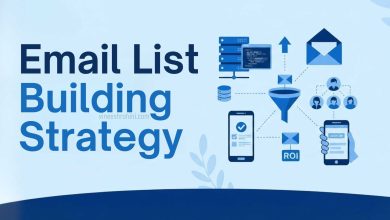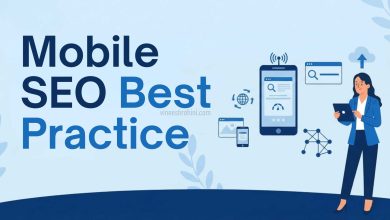Scope of Digital Marketing in the Online Education System
The landscape of education has transformed significantly over the past few decades, with the advent of digital technology playing a pivotal role in this evolution. In recent years, the fusion of digital marketing and online education has created a dynamic synergy, reshaping the way educational institutions connect with learners. This essay explores the expansive scope of digital marketing in the online education system, examining its impact on student acquisition, engagement, and the overall growth of the e-learning industry.
I. The Rise of Online Education
To appreciate the scope of digital marketing in online education, it is essential to understand the significant growth and relevance of online learning platforms. The factors contributing to this surge include:
- Accessibility: Online education eliminates geographical barriers, making quality education accessible to learners worldwide.
- Flexibility: E-learning offers flexible schedules, catering to individuals with diverse commitments and lifestyles.
- Cost-Efficiency: Online courses are often more affordable than traditional brick-and-mortar institutions, reducing the financial burden on learners.
- Personalization: Digital platforms enable personalized learning experiences, catering to individual learning styles and paces.
- Technological Advancements: Evolving technology, including high-speed internet and mobile devices, has made online learning more engaging and interactive.
II. The Role of Digital Marketing
Digital marketing has emerged as a catalyst for the growth and sustainability of online education. Its scope extends far beyond traditional advertising and encompasses various strategies tailored to the unique challenges and opportunities in the e-learning sector.
- Targeted AdvertisingDigital marketing enables educational institutions to target specific demographics, ensuring that their courses reach the right audience. By analyzing user data and behavior, marketers can create personalized ad campaigns that resonate with potential learners.
- Search Engine Optimization (SEO)Effective SEO practices enhance the visibility of online courses and platforms on search engines like Google. By optimizing content with relevant keywords and ensuring mobile-friendliness, educational websites can rank higher and attract more organic traffic.
- Content MarketingContent marketing involves creating valuable, informative content such as blogs, articles, and videos to engage and educate potential learners. It positions educational institutions as authoritative sources and helps build trust with the audience.
- Social Media MarketingSocial media platforms are powerful tools for promoting online education. Educational institutions can create a strong online presence, engage with learners, and run targeted advertising campaigns to boost enrollment.
- Email MarketingEmail marketing remains an effective way to nurture leads and keep learners informed about course updates, new offerings, and exclusive promotions.
III. The Impact on Student Acquisition
Digital marketing has significantly impacted student acquisition in the online education sector. Here are some key ways in which it has reshaped the enrollment process:
- Global Reach: Digital marketing allows educational institutions to reach a global audience, transcending geographical boundaries. This expanded reach increases the potential pool of students.
- Cost-Effective Marketing: Compared to traditional marketing methods, digital marketing is often more cost-effective. Educational institutions can allocate their budgets efficiently to reach a broader audience without excessive spending.
- Data-Driven Decision Making: Digital marketing provides valuable data and analytics, allowing institutions to assess the effectiveness of their marketing campaigns. This data-driven approach enables continuous optimization and improved targeting.
- Personalization: By leveraging data and insights, digital marketing enables institutions to tailor their messaging and offerings to individual preferences, enhancing the likelihood of conversion.
- Diverse Marketing Channels: Online education marketers can leverage a variety of digital channels, including social media, search engines, email, and content marketing, to connect with potential students across the digital landscape.
IV. Enhancing Student Engagement
Beyond acquiring students, digital marketing plays a crucial role in engaging and retaining learners in online education platforms. Here’s how:
- Customized Content: Through data analysis, institutions can create customized content that resonates with students’ interests, leading to higher engagement and motivation.
- Community Building: Digital marketing strategies can foster online communities where students can interact, collaborate, and seek support. These communities enhance the overall learning experience.
- Feedback Mechanisms: Digital marketing tools enable institutions to collect feedback from learners in real time, allowing for prompt adjustments and improvements in course content and delivery.
- Timely Notifications: Automated email marketing and notification systems keep learners informed about upcoming assignments, exams, and course updates, ensuring they remain engaged and on track.
- Gamification: Digital marketing techniques like gamification can be applied to online education platforms to make learning more interactive and enjoyable, boosting student engagement.
V. The Growth of the E-Learning Industry
The symbiotic relationship between digital marketing and online education has contributed significantly to the growth of the e-learning industry. This growth is evident in several ways:
- Market Expansion: Online education platforms can tap into diverse global markets, leading to an exponential increase in the number of learners.
- Diversification of Courses: Educational institutions can offer an extensive range of courses catering to various niches and skill levels, attracting a broader audience.
- Economic Impact: The e-learning industry generates substantial revenue, contributing to economic growth and job creation in the digital marketing and educational technology sectors.
- Technological Advancements: The demand for online education has driven technological innovations, leading to more immersive and effective learning experiences.
- Lifelong Learning: Online education, promoted through digital marketing, encourages lifelong learning, fostering a culture of continuous skill development.
VI. Challenges and Ethical Considerations
While the scope of digital marketing in online education is vast, it also presents challenges and ethical considerations. Some of these challenges include:
- Data Privacy: Educational institutions must handle learner data responsibly and ensure compliance with data protection regulations.
- Digital Divide: Access to online education can be limited for individuals without reliable internet access or suitable devices, exacerbating existing inequalities.
- Quality Assurance: Maintaining high-quality educational content is crucial. Overemphasis on marketing without adequate course development can harm the reputation of online education.
- Ethical Marketing: Institutions must practice ethical marketing by providing accurate information about courses, fees, and outcomes to avoid misleading potential students.
Conclusion
The scope of digital marketing in the online education system is expansive and transformative. It has revolutionized student acquisition, engagement, and the overall growth of the e-learning industry. As technology continues to evolve and educational institutions adapt, the synergy between digital marketing and online education will play an increasingly pivotal role in shaping the future of learning.
To harness the full potential of this partnership, it is essential for educational institutions to adopt ethical marketing practices, prioritize data privacy, and focus on delivering high-quality educational content. As online education continues to democratize access to knowledge and skill development, digital marketing will remain a vital instrument in bridging the gap between educators and learners in the digital age.



